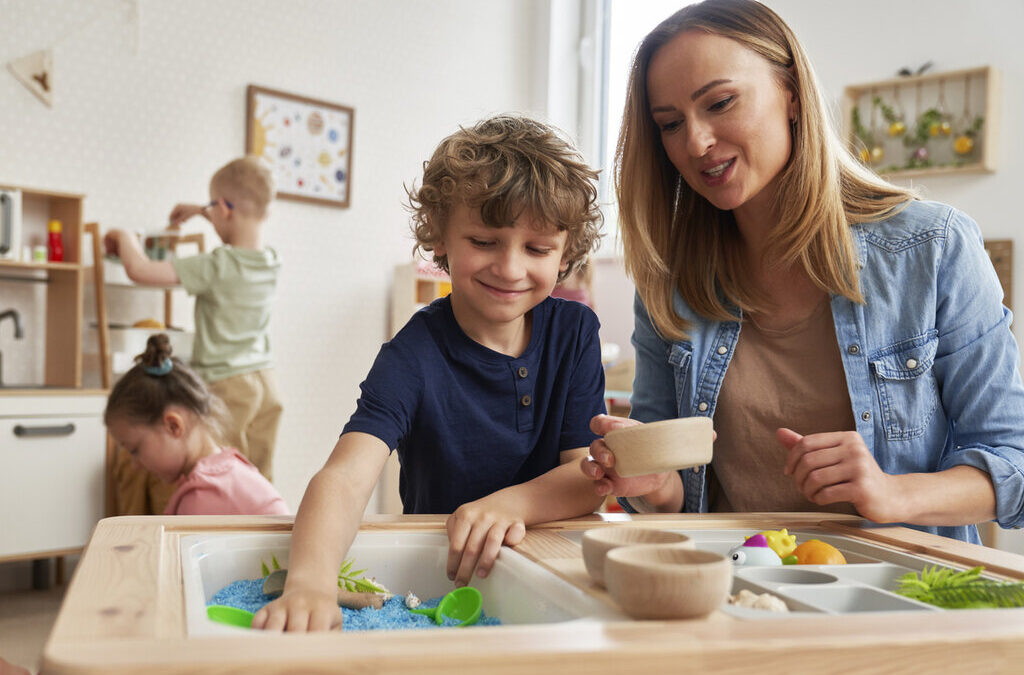How to Help Your Child with Autism Transition Back to School After a Long Holiday Break
January 6, 2025

Bedtime routines: These routines are important to keep before, during, and after holiday breaks. Although it may be tempting to give your child free reign with their bedtime when there isn’t school the next day, major changes in a bedtime routine could cause unwanted effects. Your child may experience tiredness, irritability, trouble concentrating, heightened sensory issues, and the list goes on. A better option would be to give your child a choice in their bedtime routine that would have minimal negative effects, if any. The change would be very small, but your child will feel as though they had a say in their holiday break bedtime routine. For example, if the usual routine includes teeth brushing at 7 :00 PM, read a book from 7:15 PM – 7:45 PM PM, and lights off at 8:00 PM, try asking your child if they would like to brush their teeth at 7:15 PM instead of 7:00 PM. Then, give your child more options with the reading materials, such as a magazine instead of a chapter book, or a story on a Kindle/iPad instead of a physical book. Finally, ask your child if they would like to stay up a few minutes later, so “lights out” would be at 8:15 PM instead of 8:00 PM.
Morning routines: A morning routine on a non-school day looks different than a morning routine on a school day. Perhaps your child sleeps in a bit longer or maybe they do not need to plan out their snacks and lunch for the day. It would be unrealistic to duplicate the same morning routine on school days during non-school days because, simply, the child will not be leaving for school. However, that does not mean that a routine should not take place. It would be a good idea to prepare your child during a holiday break to follow some sort of morning routine and explain that there can be different routines for different days. For example, a non-school morning routine should still involve waking at a certain time, making a bed, brushing teeth, and dressing for the day. However, there can be more flexibility in the choice of clothes (i.e. a sweatshirt and joggers for lounging instead of more formal school clothes), choice of breakfast (offer your child the opportunity to make pancakes or waffles together instead of eating the typical prepared breakfast on a school morning), and review the plans for the day (i.e. instead of going over the school day plans, the non-school day plans may include a walk around the development or tidying up the house before free time). The point is that children do better with structure with the ability to make some choices in their routine.
Keep up with academics: Children need breaks from school, just like adults need breaks from work. However, it is important to not eliminate all academic tasks during a break. You do not need to teach your child a new academic lesson and give them a test. However, you can take what they are learning in school and create a small, fun and doable activity to complete over break. Perhaps for 20 minutes a day over the entire break, you have your child research a new fact about a history lesson they learned right before break started. You could also have your child work on an art project for a few minutes daily, and upon completion, they earn a reward. You could even incorporate a trivia game to play during a few days of the break that revolves around information your child has learned before the break. These small, but meaningful, academic exercises are not highly demanding (easy for the child to complete), but they help with keeping your child on track and transition more smoothly back to school, where the demands are larger.
Diets over break: Food is a huge part of families’ cultures, especially during holidays. Different meals, more desserts, more eating out – most people look forward to this! However, for children with Autism, it is important that their diets aren’t completely interrupted. Excessive sugar and processed foods can cause dysregulation in anyone, especially in children that already struggle with regulating themselves. Everything in moderation – meaning if your child loves holiday cookies, offer them two instead of the entire tin. Make sure to still incorporate healthy food choices in the holiday meals, such as your child’s favorite fruit or vegetable. If you do not allow your child to completely overdo it, they will feel physically better returning to school after the break is over.
Address your child’s emotions: Some breaks are longer than others, which requires more frequent check-ins with your child. For example, a typical Thanksgiving break is usually only two days off from school, while a Christmas/Hannukah break can be seven or more days off from school. A lengthier break may cause unsettling emotions for your child, such as fear of missing out on activities with their friends, or worry about coming back to a large workload once school returns, or nervousness from beginning a new club or sport upon the return from break. Your child’s emotions are valid and should be addressed with the parent. A parent can check in with their child right before break begins and ask how their child is feeling about the long break. A parent can even use visuals and emotion boards if their child isn’t quite able to explain how they feel. While validating your child’s emotions, help them come up with coping skills that will assist them in keeping these emotions in check.